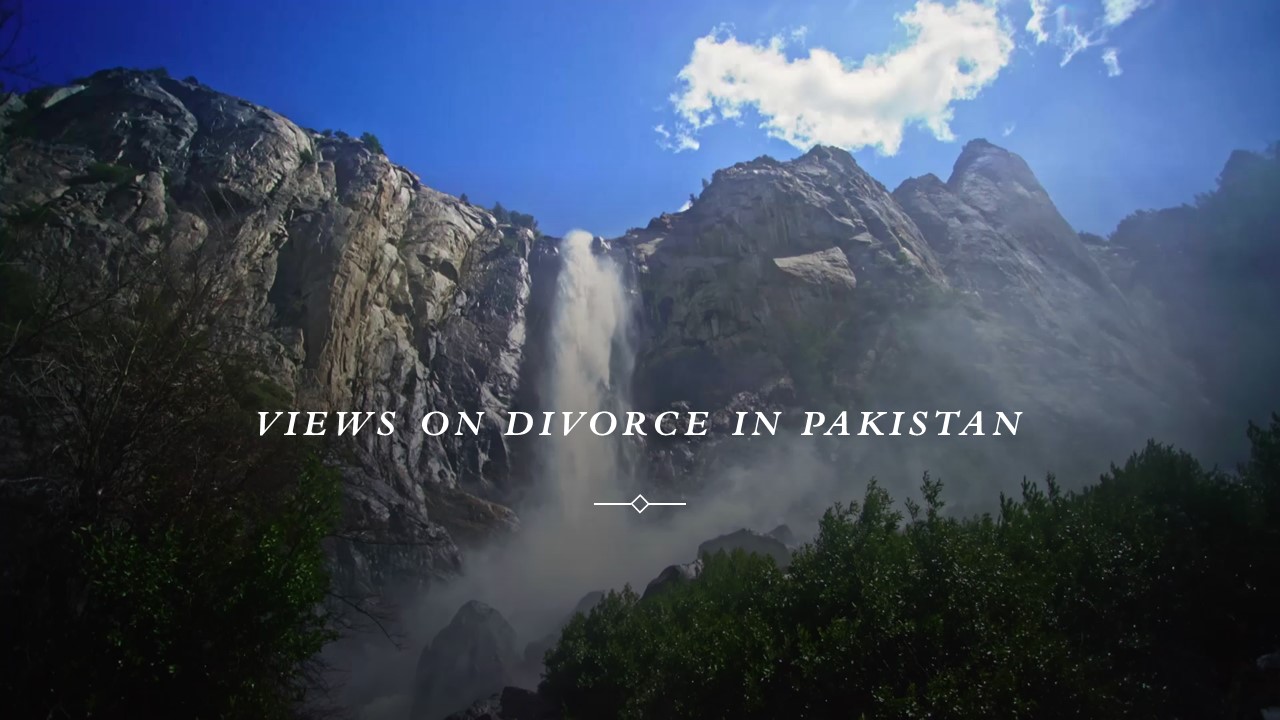For generations, Pakistani families and marriages have been endogamous. Their parents or other family elders arranged their children’s marriages. These were the “arranged marriages.” Currently, marriage is still a family affair in Pakistan. Despite modernization, arranged marriages are still widespread. Parents and other elderly people are involved in their married children’s future. However, the views on divorce in Pakistan are changing nowadays.
Divorce is frowned upon in Pakistani Islamic culture. Even discussing the potential for divorce in their extended families has been forbidden. However, the culture in Pakistan has been changing over recent years. Nowadays, the notion of divorce is not taboo anymore (Ahmed, 2021).
Cultural attitudes have shifted in many traditional societies around the world, including Pakistan, over the last few decades.
Cultural Evolution of Arranged Marriages
The idea that married couples should be in tune with their emotions and wellbeing is more culturally accepted now than before. People recognize that sometimes it is better to let go of something than to hang on to it. “Gone are the days when partners, especially women, could just stick with an abusive spouse because of the “What will people say syndrome.” (Sheraz, 2019).
Awareness and acceptance of gender equality, in some respects, are increasing in many countries, including Pakistan. In Pakistani society, education has played a significant role in the evolution of marriage. Modern women are more educated, so the concern about who will look after them has faded. Women today are more aware of their rights and choices. They have a better understanding of their rights and are aware that they can use their rights to achieve happiness. They understand that they have the freedom to walk away if they so choose.
As a result of changing cultural views, divorce rates are rising in Pakistan. Some can attribute the rise in divorce rates to the decline in arranged marriages and the rise in love marriages. This new social trend, however, may be caused by more people realizing that women and men have the right to choose who they want to marry and how they want to live their lives (Sheraz, 2019).
The Modern Right to Choose a Partner for Marriage and Divorce in Pakistan
In the end, men and women choose their own happiness over the happiness of their parents. Although this may appear cruel, it is critical for youngsters to consider their own destiny. Parents have already accepted their decisions, and it is now up to the children to make their own choices (Ahmed, 2021).
A divorce can be no bad thing at all, if it paves the way for a better life and the wellbeing of the people. Instead of enforced interdependence, which keeps a man and a woman together in an unhappy relationship, they get independence, which gives them the possibility of a better relationship. Arranged marriages have been based on economic and social needs for survival. Nowadays, many societies free people from the need for survival. As a result, the modernization of their culture provides the opportunity to pursue a happy relationship.
How are Pakistanis finding their partners these days? According to one of the recent Gallup polls conducted in Pakistan, only 5% of Pakistanis said they had a love marriage, while 85% of Pakistanis met their spouse through parents or close relatives (Sheraz, 2019).
Modernization in Pakistani Culture and Divorce in Pakistan
With the passage of time, better education, women’s empowerment, and western influence have changed Pakistani culture and people’s mindsets. Regardless of the modern shift in cultural attitudes, men and women may still face criticism if they come forward with a partner they wish to marry. Unfortunately, offensive actions against those who seek to express their freedom continue to occur in Pakistan and in the Pakistani diaspora abroad (Ahmed, 2021).
Assimilation of immigrants from Pakistani culture into other societies occurs slowly. It is likely that the second generation of Pakistanis will be able to better adopt new perspectives. And the cultural evolution of Pakistani marriages towards positive acceptance of love marriages will continue.
Social transformation from collectivistic societies of interpersonal interdependence to individualistic societies of interpersonal independence is the modern tendency of cultural evolution. People need to acknowledge that cultural evolution from arranged marriages to love marriages is inevitable. It just takes time.
